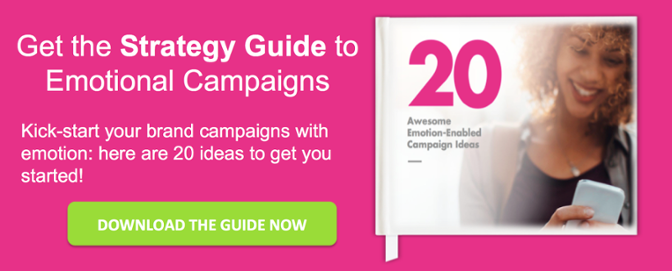By Tom Shapiro, CEO of Stratabeat
What strikes fear in any marketer’s heart? You invest countless hours in your marketing campaign. You segment your audience and define personas. You go through round after round of design. You work and rework your messaging. You identify the perfect channels for your marketing. And then after all of that…
Nothing. No response. Your audience doesn’t notice, and doesn’t care.
Ouch!
How can this be? How is it even possible? How can so much marketing effort result in indifference in the audience?
Overwhelmed with Noise
First of all, buyers of all kinds, both B2B and B2C, are completely overwhelmed with information overload. They are bombarded with marketing messages, approximately 3,000 to 5,000 messages a day. And that doesn’t even include social media.
Buyers are grappling with cognitive overload. When the brain intakes too much information, it starts to block it out. In this environment, it’s extremely difficult for your message to break through.
The Wandering Mind
On top of information overload, the human brain likes to wander. In fact, the brain wanders 30% of the time on average, and can sometimes wander 60% or 70% of the time, according to behavioral scientist Susan Weinschenk. When a buyer encounters your marketing message, there’s a good chance they are not listening. An impression these days is an almost meaningless metric.
The Suspicious Mind
People don’t want to be sold to. Their brains are on guard to defend them from sales tactics trying to trick them into opening their wallets. When seeing or hearing an advertising message, many buyers automatically harden their protective shield and their suspicion elevates in response to whatever it is your brand has to say. The threshold to grab their attention is at an all-time high, as is the threshold to gain their trust.
Rationality Lacks Effectiveness
You probably run across rational ads and marketing messages often. Real-life marketing headlines by CRM software companies, for example, include:
- CRM software to fit your business
- All-In-One Sales Platform
- [ABC Brand] CRM Is Ready. Are you?
- Complete CRM Software for One Simple Price
- Get the CRM with a 360° Customer View
- Get a 360° View From Your Online CRM
- Nurture leads, develop repeat customers, and generate referrals.
- Simple, Powerful, and Affordable
Are you falling asleep yet?
I mean, come on! What kind of laziness is this? Of course your CRM software is all of these things. But that’s the problem. This type of marketing is based on rational reasoning. “Nurture leads with our software.” Of course, that’s what your software does.
Your buyer, though, is reviewing a dozen different options. Much of the language is the same. Many CRM solutions are similar in functionality. If your brand is trying to market based on rationale, guess what? Your buyer categorizes the brand touchpoint as a “me too” marketing message amid all the similar-sounding noise and their mind starts to wander. Not exactly why you wrote that marketing headline now, is it?
The Indifferent Mind
By default, your buyer is indifferent. That’s the starting line. You need to realize that, or your marketing is going to face a great deal of indifferent people who don’t react to your message.
People approach any marketing message with the exploration of what’s in it for them. They don’t care that your product comes in five colors or that your customer service is good – these are merely table stakes! People are self-interested and are yearning to understand how they themselves will benefit from your product or service. Writing that you offer “CRM software to fit your business” tells them nothing to get them excited about the difference you will make in their business. It’s part of the noise instead of breaking through the noise.
The destructive power of indifference to your brand is similar to that of a personal relationship. Dr. John Grohol, founder & CEO of Psych Central, believes that relationships can overcome arguments, disagreements, and even angry tirades. What they can’t overcome, though, is indifference. “What a relationship has real difficulty surviving is when two people…become indifferent toward one another. When you’ve given up on emotion entirely, when you feel nothing toward the other person, that’s a difficult thing to come back from. Communication appears to be taking place, but it’s just shallow talk...”
Is your marketing merely shallow talk?
Break Through All the Clutter
As you can see, your brand is up against many obstacles in trying to capture the attention of buyers. What’s a brand to do?
A powerful strategy for breaking through all the clutter is to incorporate deviation and surprise in your marketing. Be different. Do the unexpected. Use visuals that stop them in their tracks. Say something that turns heads. Communicate what the others dare not say.

The business communications software company Slack uses imagery of pink ponies, rainbows, kittens, ice-cream, and lollipops in its ads. Crazy? Yes. Profitable? The brand is now worth roughly $4 billion, just three and a half years after its first beta release.
In one sense, the brain is a prediction engine. The old brain is in “fight or flight” mode and is constantly trying to predict what’s going to happen next in order to protect you. In the case the brain thinks it knows what’s coming next, it moves on to the next point of focus. This helps the brain to process countless interactions continuously. The key is to surprise the brain so that it takes time to truly focus on your brand.
The neuroscientist Gregory Berns and his team conducted studies that found the human brain enjoys surprise even more than things the brain likes. In other words, the human brain is hardwired to enjoy surprise. So, give your buyers more surprise, and more enjoyment in the process. While your competitor is promoting that it’s an “All-In-One Sales Platform,” you can market your CRM software with a headline that deviates from the norm, such as:
“Win So Many New Customer Accounts, Your Competitors Will Start Sending You Their Resumes”
Get Them Emotionally Engaged
Beyond deviation and surprise, use emotion in your marketing to break through all the clutter. One of the most important goals you should have as a marketer is to evoke an emotive response in your audience.

In his book Emotionomics, Dan Hill writes, “Advertising needs to be emotionally absorbing. Otherwise it’s irrelevant and stale.” He adds, “The mind is geared to filter out stimuli, requiring emotion to break through.”
This is backed up by numerous studies. The neuroscientist Antonio Damasio found that people who had damage to the part of the brain that triggers emotions (in other words, they couldn’t feel any emotion), had an extremely difficult time making any decisions, including the decision to make any type of purchase.
In the book Brand Immortality by Hamish Pringle and Peter Field, an analysis of data from the IPA (the UK-based Institute of Practitioners in Advertising) found that advertising campaigns that relied on emotional appeal outperformed those based on rational persuasion by roughly two-to-one (31% vs. 16%).
Google and CEB conducted a study of B2B firms and found that emotional messaging has twice the impact as non-emotional messaging, and that purchase intent declines if emotional messaging is reduced during the purchase cycle.
Emotional marketing works!
Overcoming Buyer Indifference
Your prospective buyers are indifferent to the barrage of marketing messages being thrown at them every day. Make sure your marketing stands out and not only captures their attention, but enraptures them. Use deviation, surprise, and emotions to break through all the noise and win the hearts of your audience.
 Tom Shapiro is CEO of Stratabeat, a branding, design, and marketing agency. Shapiro has developed marketing strategies for a range of market leaders, including AT&T, P&G, Hewlett-Packard, Kraft Foods, and UnitedHealthcare.
Tom Shapiro is CEO of Stratabeat, a branding, design, and marketing agency. Shapiro has developed marketing strategies for a range of market leaders, including AT&T, P&G, Hewlett-Packard, Kraft Foods, and UnitedHealthcare.






